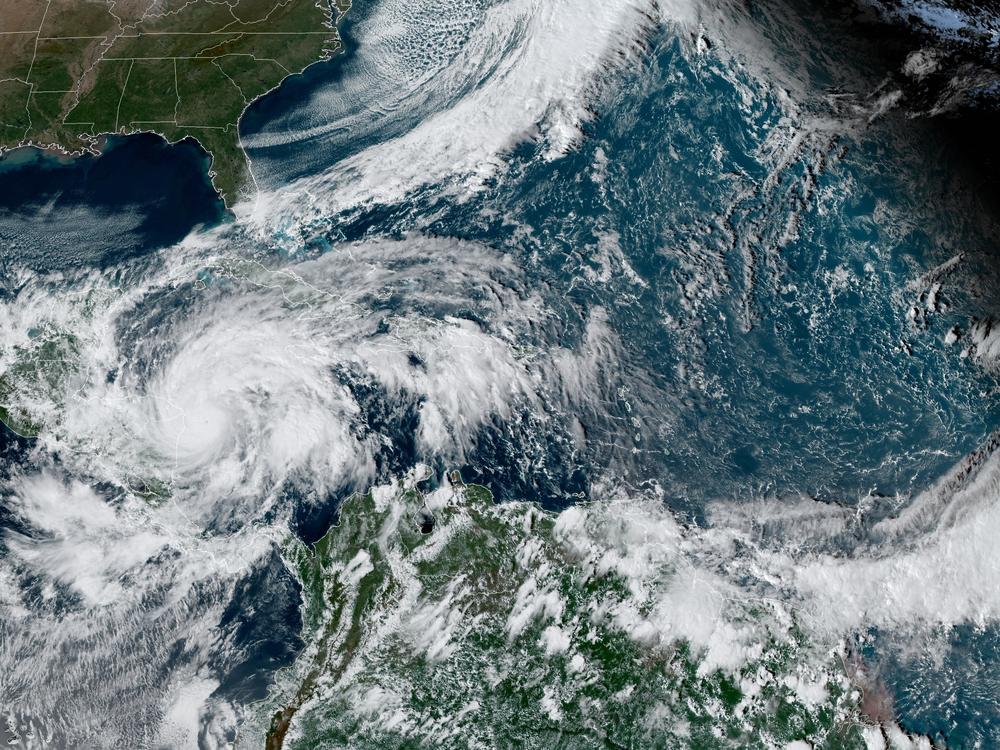Section Branding
Header Content
Eta Is Now A 'Major Hurricane' As It Barrels Towards Central American Coast
Primary Content
Updated at 4 p.m. ET
Eta, the slow-churning storm barreling towards the eastern coast of Central America, was upgraded to "a major hurricane" Monday, according to the National Hurricane Center.
It is now a Category 4 storm with maximum sustained winds of 130 miles per hour, according to the NHC's 4 p.m. ET advisory, which adds the storm could produce "life-threatening storm surge, catastrophic winds, flash flooding and landslides."
While it is moving at 9 miles per hour, forecasters say that satellite data indicate that Eta is rapidly gaining strength and will continue to do so as it reaches the coast of Nicaragua.
The storm is expected to lose strength, eventually, but only after it makes landfall, which is expected to happen late Monday or early Tuesday.
"Catastrophic wind damage is expected where Eta's eye wall moves onshore, and preparations should be rushed to completion within the Hurricane Warning area," the NHC said.
A hurricane warning is in effect for the coast Nicaragua from its northern border with Honduras down to the coastal down Sandy Bay Sirpi. A tropical storm warning is in effect for the northeastern coast of Honduras.
After making landfall, Eta is expected to slow down drastically and bring a torrent of rain into the mountains of Nicaragua and Honduras.
Forecasters predict the storm surge could be between 12-18 feet above normal tide levels and rainfall totals of up to 35 inches in some isolated areas through Friday.
Some forecasters are drawing parallels to Hurricane Mitch which was also a slow-mover and hit this same area in 1998. Mitch remains the second deadliest Atlantic hurricane ever: 11,000 people died in Honduras and Nicaragua from flooding and landslides.
Eta is the 28th named storm of the 2020 Atlantic hurricane season and has tied the record for the most named storms in a single season, matching 2005.
Philip Klotzbach, a meteorologist at Colorado State University tweeted Monday that Eta is the third major hurricane to form in the Atlantic since Oct. 1.
In September, forecasters were forced to use the Greek alphabet because the list of available storm names had been exhausted.
The World Meteorological Organization, the entity that creates list of names in advance of the storm season, has a list of 21 potential storm names, listed alphabetically from A to W (there are no Q, U, X, Y or Z names because of availability).
The next letters of the Greek alphabet are Theta and Iota, should forecasters need to name future storms – and help make 2020 the all-time leader in named storms.
The Atlantic Hurricane season officially ends Nov. 30.
Copyright 2020 NPR. To see more, visit https://www.npr.org.

